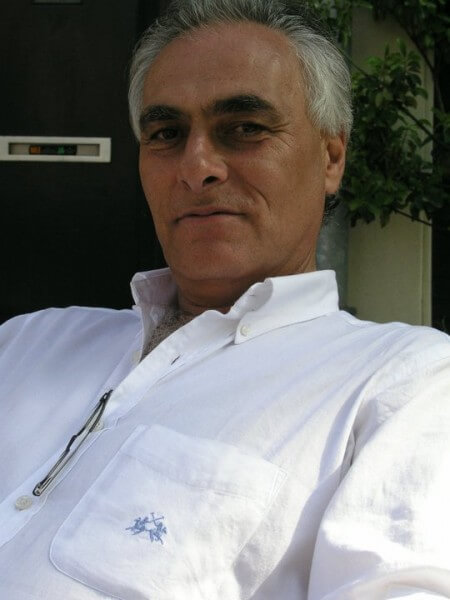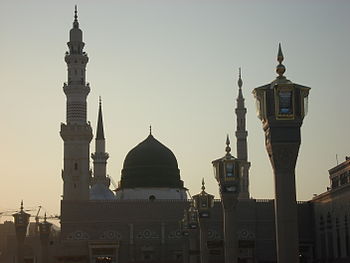By James M. Dorsey

At a news conference at the United Nations, Russian Foreign Minister Sergei Lavrov may have been on thin ice when he defended Russian intervention on behalf of Syrian President Bashar Al-Assad. He pointed to the chaos that followed US targeting of other Arab autocrats like Iraqi President Saddam Hussein and Libyan leader Muammar Qaddafi.
Russia’s track record however is no less chequered with its defeat in Afghanistan and its devastating campaign in Chechnya that has put in power a lackey of President Vladimir Putin, seemingly willing to do his wet work.
Either outcome in Syria could cost Russia dearly. Defeat in Syria in a war in which rebel forces would become the proxies of Saudi Arabia and Turkey would destroy Russia’s ambitions of becoming a power in the Middle East and North Africa.
To be sure, Russia’s air campaign in Syria, in contrast to that of the US-led coalition, has in the Syrian military a relatively capable ground force which theoretically gives it a strategic advantage. The combination of superior air power and ground troops however proved insufficient to clinch victory for the Soviets in Afghanistan.
The first signs that a similar situation could develop in Syria emerged barely two weeks after Russia launched its air campaign. Media reports suggest that Saudi Arabia has begun supplying the US-backed rebel Free Syrian Army (FSA) with TOW guided anti-tank missiles. The US has in the past equipped the FSA with the same type of missiles, which have proven effective in halting Syrian military advances. The FSA most recently employed the missiles to halt a Russian-backed offensive to the north of Hama.
In another comparison to Afghanistan, some 40 rival rebel groups in Syria, including Ahrar al-Sham, Islam Army and the Levant Front, banded together in a bid to counter the Russian offensive. “This new reality requires the region’s countries and the allies in specific to hasten in forming a regional alliance to face the Russian-Iranian alliance that occupies Syria,” the groups said in a statement that was referring to Turkey and Saudi Arabia.

In contrast to Afghanistan, Syria could develop into more than just a proxy war with Sunni countries like Turkey and Saudi Arabia. Writing on CNN’s website, Nawaf Obaid, a policy analyst with close ties to Saudi intelligence and the military warned that “now, following a successful Saudi-led campaign to wrest Aden and the rest of south Yemen from Houthi, Saleh and Hezbollah fighters” Saudi Arabia was able to turn its attention to Syria.
The Russian intervention had made it “increasingly clear that the Saudis are going to be forced to lead a coalition of nations in an air campaign against the remnants of Syrian forces, Hezbollah and Iranian fighters to facilitate the collapse of the Assad regime and assist the entry of rebel forces into Damascus …. The situation on the ground in Syria is ripe for a concerted air campaign that can assist the two major rebel coalitions ready to take Damascus and turn the course of the war,” Obaid said.
Speaking in Washington Saudi Prince Sultan bin Khaled al Faisal, a retired Saudi military commander, said in what was a veiled reference to Syria that the kingdom could put together an air coalition that would include war planes from Turkey, the United Arab Emirates, Kuwait, Qatar, Bahrain and possibly Jordan, Morocco, Pakistan and Malaysia.
Russia may be banking on the assumption that Sunni Muslim countries may be capable of arming and funding rebel groups but that Saudi Arabia and its allies are far from achieving their objectives in Yemen. The north of the country remains under control of the Houthis and only a division of Yemen would at this point allow the Saudis to disengage from the country militarily.
Nonetheless, a proxy war with the world’s major Sunni Muslim powers would diminish Russia’s ability to turn success in Syria into the kind of power it could leverage regionally. Even worse, the demise of Assad would deprive Russia of its closest ally in the Middle East. And if that were not bad enough, a rebel victory in Syria that includes Islamist and jihadist forces could mean that at least some of the estimated 3,000 Chechen and Russian foreign fighters in Syria decide to return home emboldened like their Afghan predecessors by the defeat of a major power. And finally, a defeat at the hands of Western weaponry could lower global interest in cutting deals with the Russian arms industry.
On the upside a Russian defeat of Islamic State (IS) would hold out the prospect of the restoration of Syria and Iraq as nation states within their original post-colonial borders that would be governed by regimes sympathetic and grateful to Moscow. For now, Putin has support from Russia’s predominantly Sunni Muslim community that opposes IS. That support could wane if Russia were to emerge as the major force in stymying non-IS Sunni Muslim rebels in achieving their goals in Syria.
Putin clearly stated after meeting senior Saudi officials in Moscow that he does not want Russia to be dragged into the confrontation between Sunni and Shias. That could prove to be a difficult act given Russia’s alliance with Iran, the fact that Assad is an Alawite, a sect closely aligned with Shiism and Iran, and that Saudi Arabia and its allies are determined to thwart Putin’s ambitions.
Russia’s only way out of what is likely to be a quagmire like Afghanistan, would be to ultimately install a Chechen-style Sunni potentate in Damascus. That would at best buy Russia time and possibly placate Saudi Arabia and its Sunni allies. A potentate would however more likely than not prove to be a stop gap.
James M. Dorsey is a senior fellow at the S. Rajaratnam School of International Studies, co-director of the University of Würzburg’s Institute for Fan Culture, and the author of The Turbulent World of Middle East Soccer blog and a forthcoming book with the same title.


- Soccer highlights domestic drivers in Saudi-Iranian dispute - January 4, 2016
- Soccer: Iranian moderates and hardliner lock horns on the pitch - December 29, 2015
- Trade unions test Qatari sincerity with demands for labour reform - December 20, 2015






















